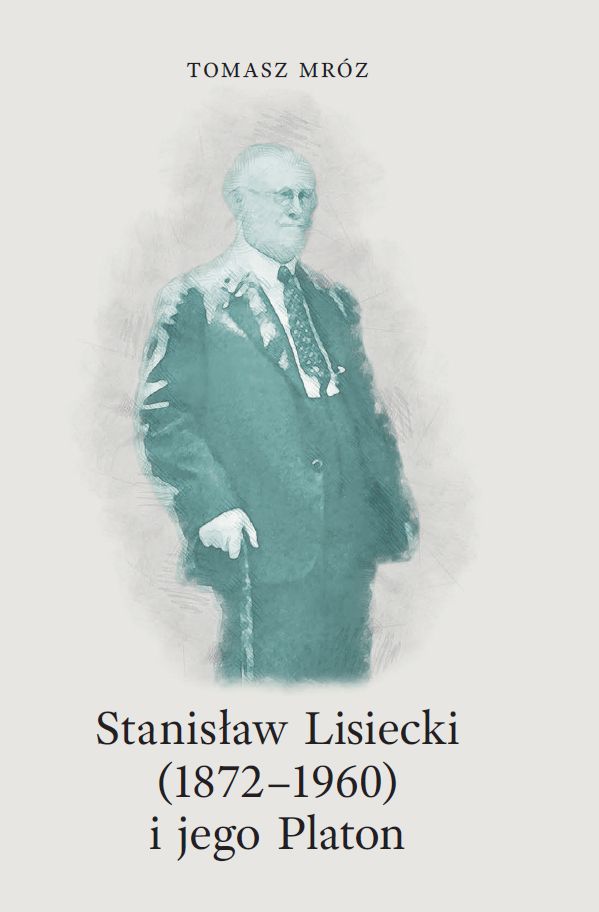
In a book series published by Marek Derewiecki a new volume has appeared. T. Mróz is the author and the title of the book is Stanisław Lisiecki (1872-1960) and His Plato (pp. 150). This book is a second one in the series and it complements volume one, which consisted mostly of unpublished materials produced by S. Lisiecki during his long and laborious life.
Apart from the foreword and concluding remarks, the book is divided into two main parts. The first part presents Lisiecki’s biography as fully as it has never been presented before. Numerous sources from the archival and manuscript collections from the libraries of Warsaw and Cracow were deployed to compose this chapter. Private, family materials were also used, including the photograph inside the book, an essential part of which was artistically remade to depict Lisiecki on the cover. His biography was divided into three chapters, which are separated from each other by two important facts in his life: leaving the clergy in 1921 and the outbreak of the World War II in 1939. The longest chapter is the middle one, between these two dates, because it was Lisiecki’s most productive period and it was possible to use numerous testimonies to document it.
Part two of the book discusses Lisiecki’s interpretation of Plato’s philosophy and its development. This part is divided into three parts as well. It presents Lisiecki’s views on the philosophical and spiritual evolution of Plato in three stages: Plato as a Socratic thinker, Plato in his mature works and Plato as an old sage. It was not possible to present Lisiecki’s views on all the important dialogues, for example on the Symposium or the Phaedrus, because his legacy is fragmentary and his comprehensive synthetic study on Plato had been destroyed during the war. Nevertheless, Plato in Lisiecki’s views is a half-religious thinker, an inspired poet and a visionary, whose creative personality was most fully expressed in his theory of the Good. The Good was sometimes identified by Lisiecki with God or with Providence and it transgressed dialectical formulation. Although Plato’s theory of reincarnation was assessed by Lisiecki as going too far, he found in it a consolation and an explanation of many phaenomena, for example, the inequality of talents among people.
Despite his admiration for Plato, Lisiecki did not avoid criticising him. Plato was for him a topical thinker and his dialogues – an intellectual challenge. We may say that Lisiecki, as many before him, was carried away by Plato’s enthusiasm, but he never lost sight of the deficiencies of Platonism.

This book is the final result of the research project on S. Lisiecki as a researcher of ancient Greek philosophy, sponsored by National Science Centre.
Recent commentaries